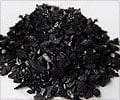Carbon nanotubes or nanopipes have proved to be of great use as cellular probes. They can be used to transport liquids to or from cells and inject solutions or drugs directly into the cells.
Carbon nanotubes (CNTs) or nanopipes have proved to be of great use as cellular probes. They can be used to transport liquids to or from cells and inject solutions or drugs directly into the cells and organelles within those cells. Owing to their small diameter, these carbon nanotubes induce little damage to cells upon penetration. Therefore, making these probes able to sense within the cells, information about chemical interactions within the cells could be obtained. Surface-enhanced Raman Spectroscopy (SERS) has this potential to make such carbon nanotubes.
A journal article just released on the nanotechnology website AZoNano examines making carbon nanotubes SERS active by functionalization with SERS active nanoparticles. This creates the possibility of extremely sensitive study and identification of components of cells. In addition, the nanotubes can be applied to a nanofluidic device where they can serve as an interconnection between a fluid reservoir and the cell, to both deliver and extract fluids. The effects of the fluids on the cells could be studied in situ.The paper by Alia Sabur from Drexel University has been released as part of the open access journal, AZoJono. The research found that carbon nanotubes and nanopipes can be used as SERS probes by two different methods that achieved identical results. Combining these SERS active nanotubes with already existing nano-probing techniques could enable the study of cells with single-molecule sensitivity.
Source-Eurekalert
GAN /J






